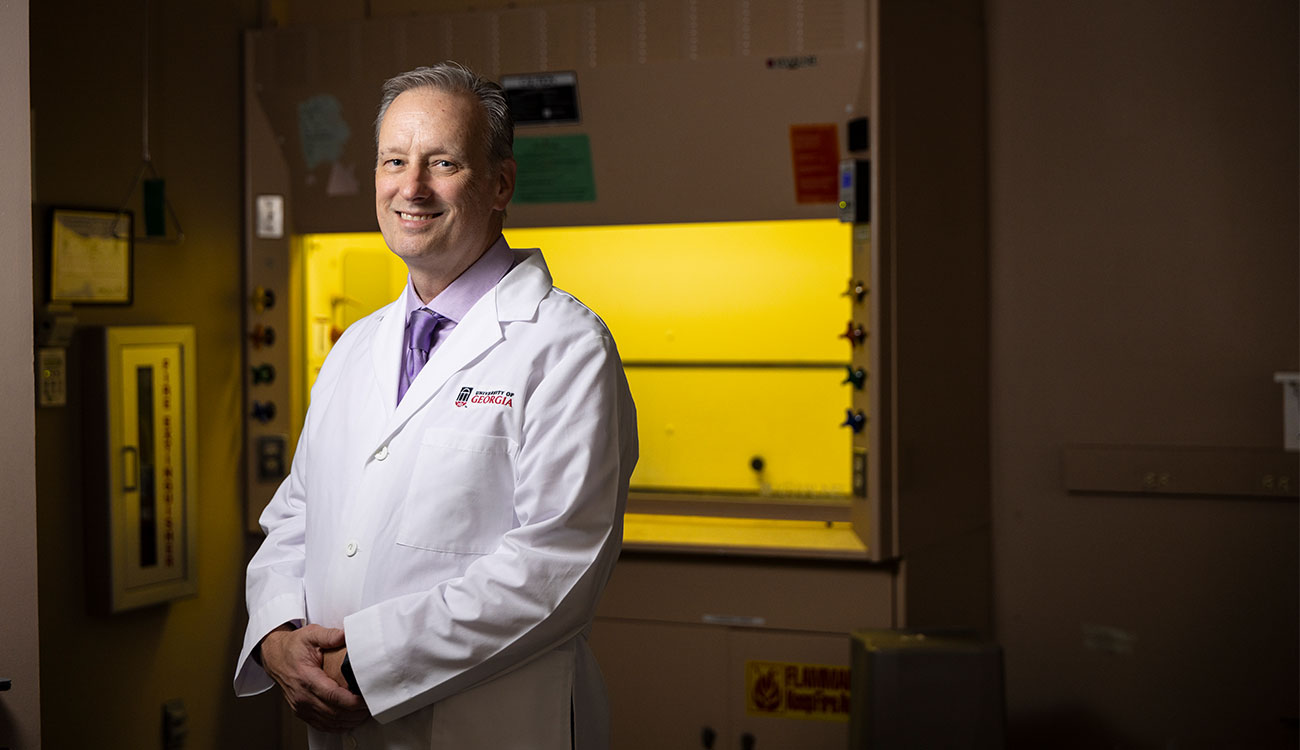If you fret about the safety of those easy, packaged salad greens, worry no more, says a University of Georgia scientist. Studies have shown that they're safe.
"When the ready-to-serve lettuce and cabbage products were first introduced, there was some concern over the safety of the packaging," said Bob Brackett, a UGA microbiologist at the Center for Food Safety and Quality Enhancement in Griffin, Ga.
"The concern was over the risk of botulism which occurs in situations of low oxygen," Brackett said. "And these bags are designed to contain low concentrations of oxygen."
Botulism affects the nervous system. Symptoms include nausea, vomiting, fatigue, dizziness, headache, dryness of skin, mouth and throat, constipation, paralysis and double vision.
"The bacterium grows in foods and produces a toxin. You eat the toxin, and it makes you ill," Brackett said.
Send e-mail to request the 200 dpi
image. S. Omahen, UGA CAES |
| PACKAGED SALADS are great shortcuts to nutritious, light meals or side dishes. Early concern about the packaging safety scared off many buyers. University of Georgia research shows the salads are safe.ÿ "We found the product would visibly spoil before there was a risk of food-borne illness," said Bob Brackett, a UGA food scientist. Kroger Produce Clerk Ray Futch is shown stocking the store's shelves with packaged salads. |
To assure safety, food scientists in the UGA College of Agricultural and Environmental Sciences studied the convenient packages before they were ever introduced to the public.
"The food industry wanted to be sure the packages were safe. And to date, there hasn't been one outbreak connected to a bagged salad," Brackett said. "And millions have been sold."
Although the potential for risk is high, Brackett said the packages for ready-made salads are designed to prevent food-borne illness.
"They're engineered so that when the product respires, it produces more carbon dioxide and reduces the amount of oxygen," he said. "The carbon dioxide slows the product's natural aging process. And this slows down deterioration."
The packages actually prevent a natural process. "Changing the gases in the bag slows the natural aging process of the food," Brackett said. "After all, it's a plant, and plants want to break down. That's how they release their seeds."
The food industry uses these special bags, he said, to extend the product's shelf life.
"When there might be a problem is if small companies or homeowners make 'Baggies' of vegetables in an attempt to do the same thing on a small scale," said Brackett.
Brackett said the main problem associated with packaged salad greens and ready-to-use vegetables is their long shelf lives.
"People think they can keep them forever, just because they look good," he said. "In this case, the quality and the safety have no relationship. The product can look really good and be bad for you."
In this case, Brackett said, spoilage also works to the consumer's benefit. "We found the product would visibly spoil before there was a risk of food-borne illness," he said.
The best safety rule, he said, is to go by the "use-by" date on the package.
"If the product's bag says 'Use by Oct. 20,' use it by that date. Don't keep it just because it looks good," he said. "Some pathogens can grow at refrigerated temperatures. The longer you keep the product, the more chances the harmful bacteria have to grow in populations."






